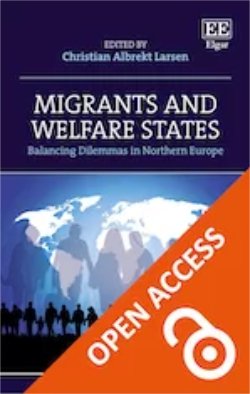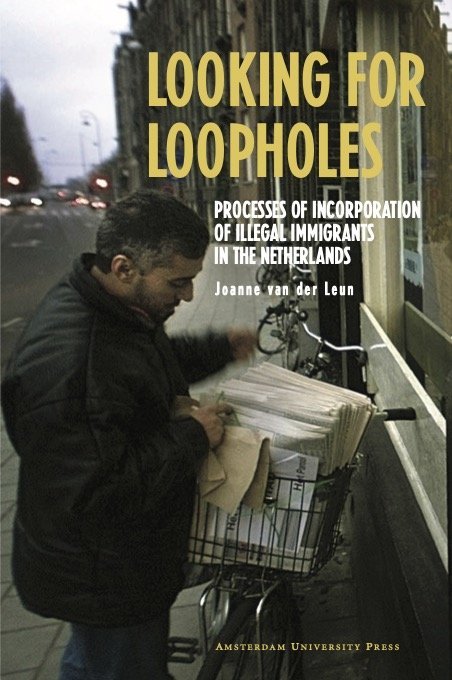By Ariel G. Ruiz Soto, Rodrigo Dominguez-Villegas, Luis Argueta and Randy Capps
As U.S. deportations to Mexico continue at substantial levels and the numbers returned by both the U.S. and Mexican governments to El Salvador, Guatemala, and Honduras are increasing, it has become more urgent for countries in the region to develop successful reception and reintegration programs that meet the diverse needs of returning migrants.
Between fiscal years 2012-18, the United States carried out approximately 1.8 million repatriations of Mexican migrants, and the United States and Mexico together accomplished 1.4 million returns of migrants from the three Northern Triangle countries.
Drawing on fieldwork and interviews with government officials, researchers, representatives of civil-society and international organizations, as well as returning migrants, this report highlights promising reintegration strategies and pressing challenges. Mexico and the three Northern Triangle countries exhibit different levels of capacity and degrees of implementation in their reception and reintegration programs. While most deported migrants now receive basic reception services, their access to reintegration services is somewhat more mixed. Among the challenges: Difficulty obtaining the official ID that allows returning migrants to access these services, limited awareness and geographic distribution of services, difficulty matching returning migrants’ skills with labor-market needs, and barriers to reintegration posed by social stigmatization and employment discrimination.
The report offers a range of recommendations to governments and others, including: Prepare migrants for reintegration prior to their return, even before deportation; issue primary ID documents from abroad or upon reception; and ensure reintegration services tap into returning migrants' cultural roots. Improving reception and reintegration services represents a long-term investment for both destination and origin countries, the authors conclude, holding the potential to reduce re-migration while enabling countries of origin to benefit from the skills and assets migrants have acquired abroad.
Washington, DC: Migration Policy Institute, 2019. 43p.
https://www.migrationpolicy.org/sites/default/files/publications/MPI-ReceptionReintegration-FinalWeb.pdf
At the Breaking Point: Rethinking the U.S. Immigration Court System
By Muzaffar Chishti, Doris Meissner, Stephen Yale-Loehr, Kathleen Bush-Joseph and Christopher Levesque
With a backlog of nearly 2 million cases, the U.S. immigration court system is in crisis. Many cases now take years to adjudicate, with asylum seekers, for example, waiting four years on average for their initial hearing and longer for a final decision. Serious concerns have also been raised about the quality of court decisions.
These twin issues of caseload quantity and decision quality have wide-ranging roots, from long-standing operational challenges in the courts to new crises in the Americas that have intensified humanitarian protection needs and other migration pressures. The courts' dysfunction has had severe knock-on effects for other parts of the nation’s immigration infrastructure, including notably the immigration enforcement and asylum systems.
This report takes stock of the many challenges facing the immigration courts and outlines recommendations that would advance the goal of delivering decisions that are both timely and fair. It explores issues including court caseload and personnel levels, docket management strategies, the use of technology in the courts, and access to representation. Importantly, the report focuses on changes that can be accomplished administratively—a necessity in a time when Congress has proven itself unlikely to tackle significant immigration matters.
Washington, DC:Migration Policy Institute, 2023. 51p.
https://www.migrationpolicy.org/sites/default/files/publications/mpi-courts-report-2023_final.pdf
Betting on Legality: Latin American and Caribbean Responses to the Venezuelan Displacement Crisis
By Luciana Gandini and Andrew Selee
More than half, and as many as two-thirds, of the estimated 6.4 million displaced Venezuelans who have settled in Latin America and the Caribbean since 2016 have been granted legal status in their host country. Most of the receiving countries in the region have responded with pragmatic measures that offer some form of legal status as well as the right to access the labor market, basic education, and emergency health care. The measures implemented are uneven and often not fully institutionalized, but they have been surprisingly generalized for a region with limited experience with large-scale immigration.
This report explores the response to Venezuelan displacement in the 15 principal host countries in Latin America and the Caribbean between 2016 and 2022. It examines the reach of different mechanisms for providing legal status and humanitarian protection—asylum systems, mobility and residence agreements, regular visas, and regularization campaigns that offer temporary status—and offers estimates of the share of Venezuelans in each country who have obtained legal status.
The report also considers the trend of governments coupling measures to provide legal status with new visa requirements that have made it increasingly difficult for more Venezuelans to arrive, pushing some into irregular migration channels. Finally, the report looks at variations in Venezuelans’ access to education and health care across the 15 countries.
Washington, DC: Migration Policy Institute, 2023. 55p.
https://www.migrationpolicy.org/sites/default/files/publications/mpi-venezuelans-legal-status-2023_eng_final.pdf
Migration Narratives in Northern Central America: How Competing Stories Shape Policy and Public Opinion in Guatemala, Honduras, and El Salvador
By Ariel G. Ruiz Soto, Natalia Banulescu-Bogdan, Aaron Clark-Ginsberg, Alejandra Lopez and Alejandro Vélez Salas
The stories told within a society about migration and migrants paint a rich picture of how its members view the opportunities and challenges associated with the movement of people, and through what lenses. These migration narratives both inform policymaking and shape the public’s reaction to government policy, affecting the policies’ chances of achieving their goals.
While El Salvador, Guatemala, and Honduras are primarily known for emigration to the United States and Mexico, these northern Central American countries have seen notable changes in migration trends in recent years. The number of migrants from South America and the Caribbean who transit through these countries on their way north has increased, as has the number of Central Americans returning to their countries of origin.
This report presents the findings of research conducted by the Migration Policy Institute, RAND Corporation, Metropolitan Group, and National Immigration Forum, comparing migration narratives within El Salvador, Guatemala, and Honduras—as well as a selection of migration narratives from Mexico and the United States that relate to Central America—over the 2018–22 period. The study explores how these narratives about emigration, transit migration, return, and other issues intersect, how they contradict or compound each other, and how they influence critical policy debates and decisions in the region.
Washington, DC: Migration Policy Institute, 2023. 49p.








